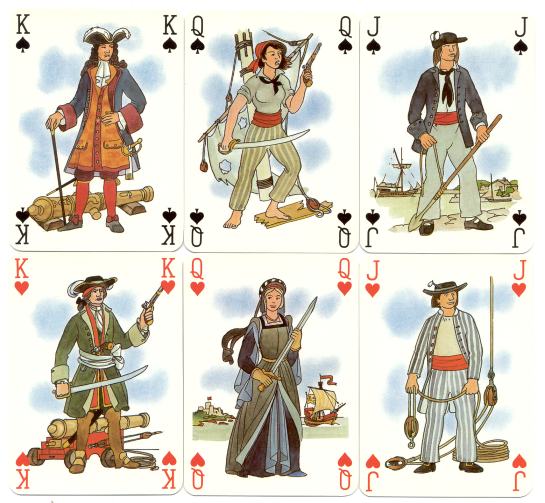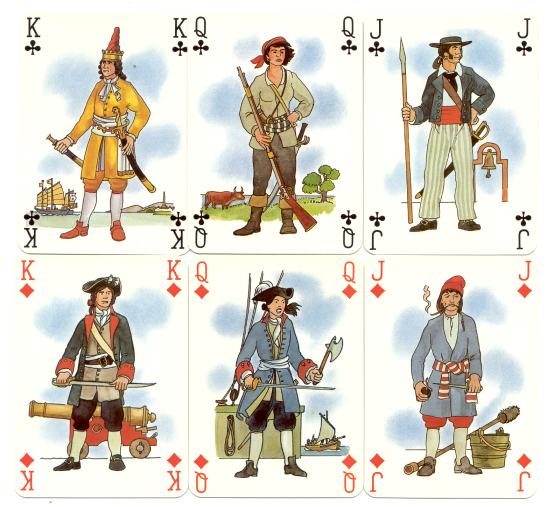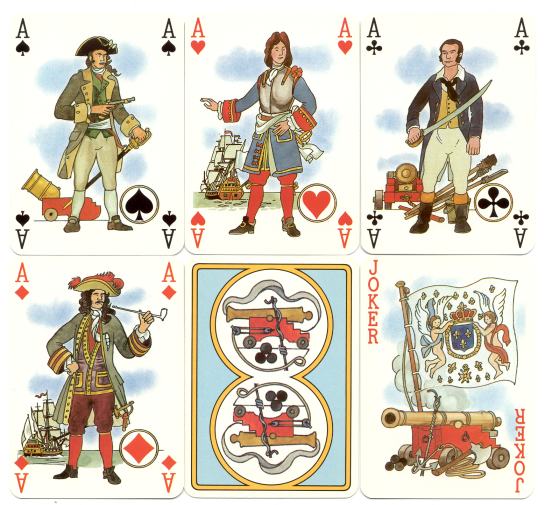
THE FRENCH & THE
SEA-
-1-
CORSAIRES or pirates ?
In the 13th century commerce between nations started to boom and consequently there was increasing commercial traffic at sea. Many small villages along the European coasts tried to benefit from the rich cargoes that were sailing along their stretch of the coast. Some villagers waited until bad weather had flushed a ship on the coast, others lured passing vessels too close to the coast and there were villagers that manned armed ships and went out to seize whatever they could get. Obviously the Corsaires had been most active and successful in that way and in later centuries their name was linked to this kind of piracy.
There's an old French folk-song in which the following lines are used:
"Qu'est ce qu'un corsaire?
Un corsaire est toujours un pendu."
"What is a corsaire? A corsaire is always a hanged man" may refer to the standard punishment for pirates in the early medieval times, but halfway the Middle Ages the corsaires were seen, even by their enemies, in fact as auxiliary forces to an official navy. And as such recognized as p.o.w's (under certain conditions) in the wars in Europe between the different kingdoms, city-states and nations. For the duration of an official war between belligerent parties and with an official letter of appointment by their prince or state, they could benefit from their status as "corsaire". Between official wars or without such a letter, they were treated like any other pirate..........and hanged.

Two decks were printed and published as "Jeu de Pirates et Corsaires" by Grimaud in 1984. The courts and aces show different pirates or corsaires, drawn by Jean Bruneau.

The back design of this deck shows a typical canon for ships, the other shows hand weapons.

The decks are very similar in design and were published simultaneously.
-0-
-2-
-3- -4- -5-
-6- -7- -8-
-9-
-10- -11- -12- -13-
-14-
XPOHOME